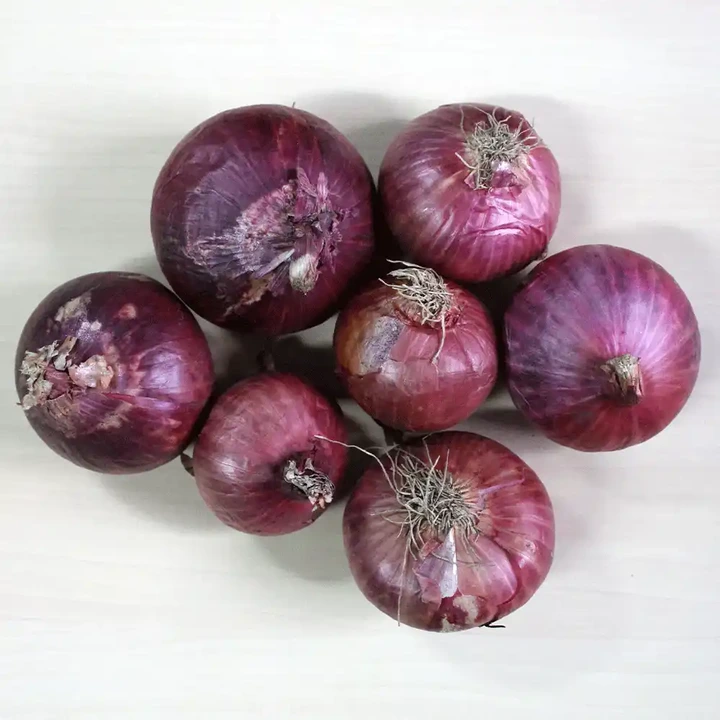WWW.SOLUTIONFANS.COM - MASTER OF ALL EXAM RUNS
Onions, a staple ingredient in various cuisines worldwide, are renowned for their distinct flavor and health-promoting properties. However, certain health conditions may warrant caution or restriction when it comes to regular onion consumption.

While onions offer numerous health benefits, it is important to understand that they may not be suitable for everyone. In this article which is in accordance to healthline, we will explore several health conditions in which individuals should exercise moderation or avoid adding onions to their foods regularly.
1.Gastrointestinal Disorders:
Individuals with gastrointestinal disorders such as irritable bowel syndrome (IBS), inflammatory bowel disease (IBD), or gastroesophageal reflux disease (GERD) may find that regular consumption of onions exacerbates their symptoms. Onions contain fructans, a type of carbohydrate that can be difficult for some people to digest, leading to bloating, gas, and abdominal discomfort. People with sensitive digestive systems or those diagnosed with these conditions should be mindful of their onion consumption and reduce or avoid them to prevent triggering unpleasant symptoms.
2. Acid Reflux and Heartburn:
Onions are known to have a high content of fermentable carbohydrates, which can contribute to acid reflux and heartburn. These conditions occur when stomach acid flows back up into the esophagus, leading to a burning sensation and discomfort. Onions can potentially relax the lower esophageal sphincter, a muscle that helps prevent stomach acid from refluxing upwards. As a result, individuals prone to acid reflux or heartburn should be cautious when consuming onions and consider limiting their intake to avoid aggravating their symptoms.
3. Allium Allergies:
Allium allergies are relatively uncommon but can cause adverse reactions in susceptible individuals. Allium is a genus that includes onions, garlic, leeks, and shallots. Allergic reactions to allium can range from mild discomfort, such as itching or rashes, to more severe symptoms such as difficulty breathing or anaphylaxis. Individuals with known allium allergies should avoid consuming onions altogether or seek guidance from an allergist for proper management and potential alternative ingredients.
4. Diabetes and Blood Sugar Control:
Onions contain natural sugars and carbohydrates that can affect blood sugar levels. While onions score relatively low on the glycemic index, indicating a slower digestion and absorption rate, individuals with diabetes or those aiming to manage their blood sugar levels need to be mindful of their onion consumption. Regular and excessive intake of onions can potentially cause blood sugar spikes, especially when consumed in large quantities or in combination with other high-carbohydrate foods. It is advisable for those with diabetes or blood sugar regulation concerns to monitor their onion consumption and consult with a healthcare professional or a registered dietitian for personalized guidance.
5. Kidney Problems and Potassium Intake:
Onions, particularly red onions, are rich in potassium. While potassium is an essential mineral that plays a vital role in various bodily functions, individuals with kidney problems or those on medications that impact kidney function may need to limit their potassium intake. Excessive potassium intake can overburden the kidneys and hinder their ability to filter and excrete potassium properly. People with kidney-related issues, such as chronic kidney disease or those undergoing dialysis, should consult with a healthcare professional or a registered dietitian to determine the appropriate level of onion consumption to suit their specific dietary needs.
6. Bleeding Disorders:
Onions contain a compound called quercetin, which possesses anticoagulant properties. While this can be beneficial for cardiovascular health, individuals with bleeding disorders or those on blood-thinning medications, such as warfarin, should exercise caution when consuming onions in large amounts. Quercetin’s anticoagulant effects can potentially interfere with blood clotting mechanisms, leading to increased bleeding or complications in individuals who already have bleeding disorders. It is crucial for individuals with bleeding disorders to seek medical advice and discuss their onion consumption with their healthcare provider to prevent any potential negative impact on their condition
also don't forget to leave a Reply, we would very MUCH appreciate Your Comments On This Post Below. Thanks!

